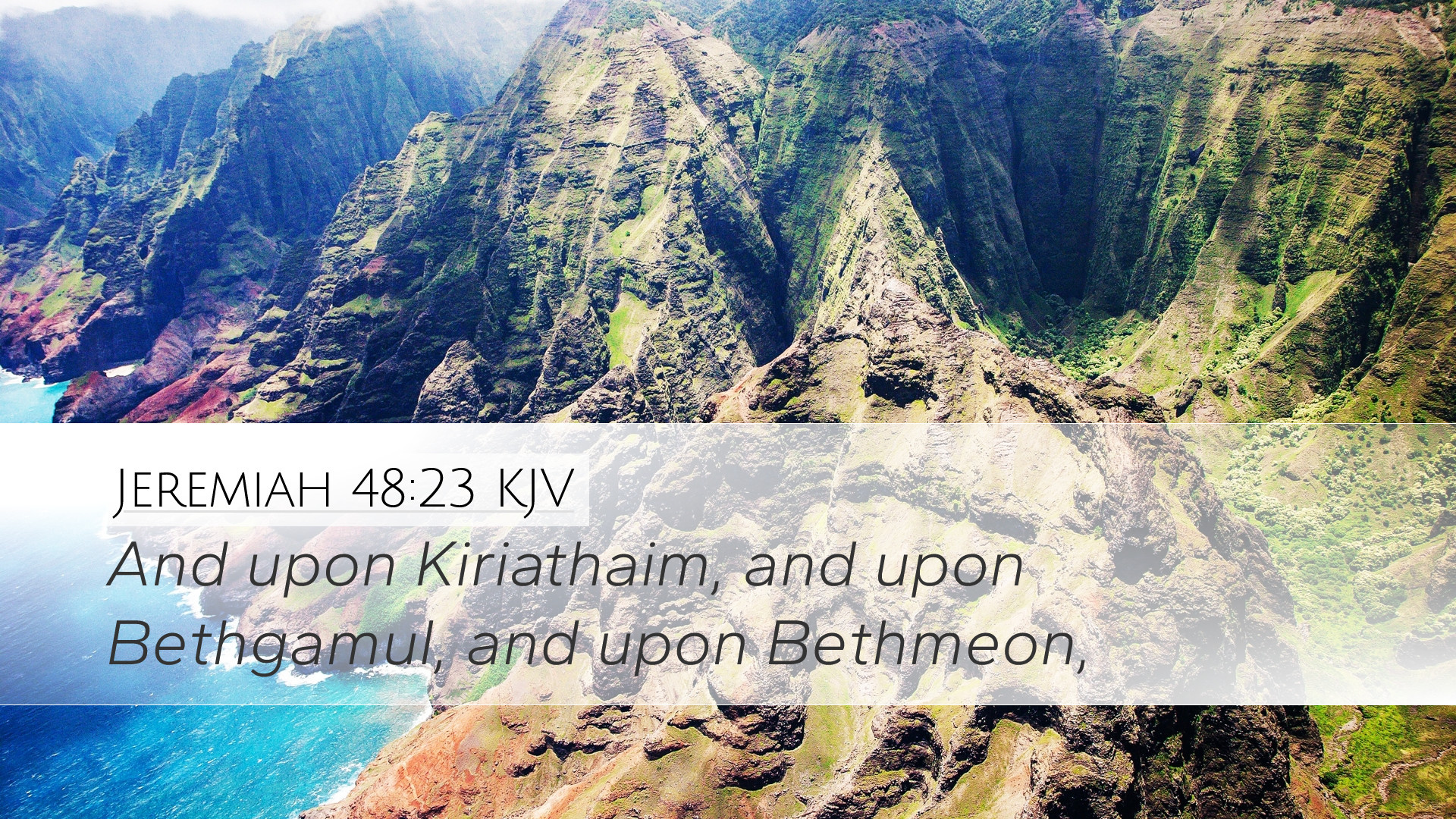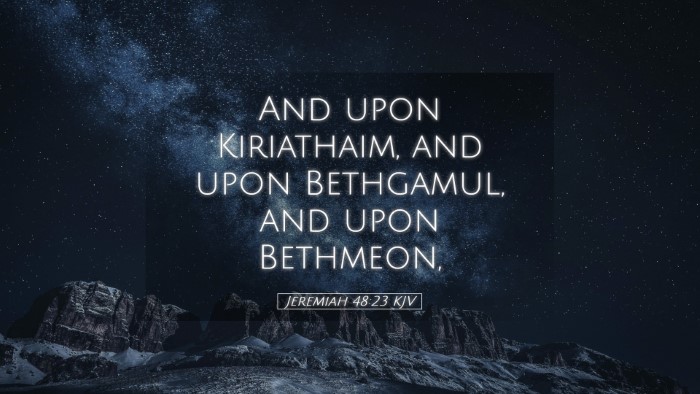Commentary on Jeremiah 48:23
Jeremiah 48:23 states, "And upon Kiriathaim, and upon the land of the Moabites, and upon the cities of the land, their cities shall be like waste places, and towns uninhabited." This verse encapsulates the prophetic declaration regarding the impending desolation of Moab. It serves as a crucial point of study for pastors, theologians, and scholars, elucidating the themes of judgment, restoration, and the sovereignty of God.
Contextual Background
The Book of Jeremiah is primarily a collection of oracles delivered to the people of Judah. However, it also encompasses prophecies against neighboring nations, including Moab. Understanding these oracles necessitates a grasp of the historical and theological context surrounding them. Moab, located to the northeast of Israel, was frequently in opposition to Israel and was known for its idolatrous practices.
Exegetical Insights
Matthew Henry provides a detailed exegesis, emphasizing the significance of Kiriathaim. He elucidates that Kiriathaim refers to a fortified city of Moab, indicative of a refuge from invaders. The prophecy highlights that even their fortified cities will not escape divine judgment.
Albert Barnes adds depth by comparing the fate of Moab to that of other nations that opposed God’s people. He underscores the universality of divine judgment, reminding us that no nation can stand against the will of God. The desolation of cities conveys a theological message—that prosperity apart from God leads to destruction.
Adam Clarke emphasizes the metaphorical implications of 'cities like waste places.' He notes this reflects not only physical desolation but spiritual barrenness, warning against the consequences of disobedience to God. According to Clarke, the text serves as both a historical account and a timeless lesson on the repercussions of turning away from divine mandates.
Theological Themes
This verse opens the door to a myriad of theological reflections:
- Judgment: The judgment upon Moab symbolizes God's righteousness. Sin and defiance towards God invoke His wrath, and the prophetic word serves as a stark reminder of the consequences that follow.
- Hope within Judgment: While judgment may seem harsh, it is a part of God's redemptive plan. There is often a call to repentance intertwined within the prophetic messages.
- Sovereignty of God: The passage reinforces the notion that God’s authority extends over nations. No geopolitical power can thwart God’s purposes.
Practical Applications
This commentary serves as a vital resource for pastors and spiritual leaders aiming to communicate the richness of Scripture. Here are several practical applications drawn from this verse:
- Encouragement in the face of adversity: Just as Moab faced divine judgment, congregants should be encouraged to seek God earnestly, knowing that His justice will ultimately prevail.
- Ministering to the lost: The fate of Moab serves as a somber reminder of the urgency in sharing the gospel. There is a call to reach those who, like Moab, may be living in opposition to divine truths.
- Emphasizing repentance: This scripture can underline the importance of personal and communal repentance in light of God's holiness. It prompts believers to reflect on their own lives and seek alignment with God’s will.
Concluding Thoughts
Jeremiah 48:23 presents a profound insight into the character of God and the reality of sin. By blending the perspectives of Matthew Henry, Albert Barnes, and Adam Clarke, we gain a holistic understanding of the implications of this verse. It challenges us to consider the broader implications of divine justice while providing hope through the lens of repentance and restoration. As scholars and leaders engage with this text, it is imperative to communicate its truths with clarity and compassion, fostering a deeper understanding of God’s unwavering righteousness amid the moral complexities of the world.


